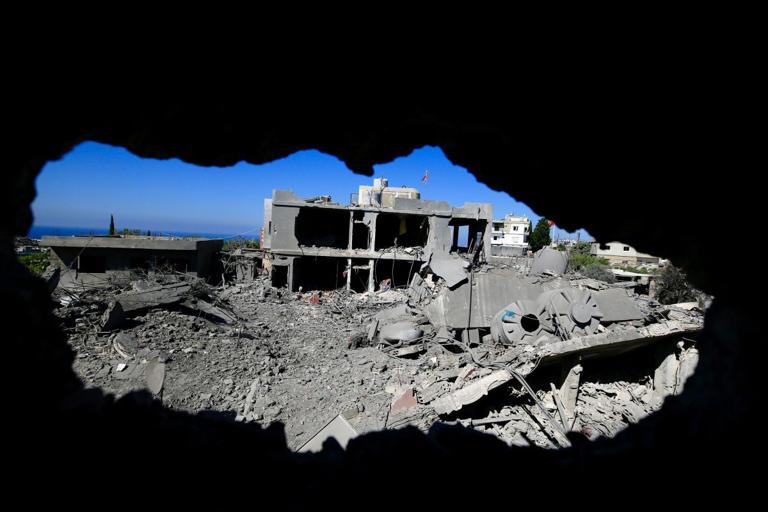
Israel kills Hezbollah commander in Lebanon
Israel announced Thursday that its air force struck and killed a Hezbollah commander, as its military continued its barrage of Lebanon despite ongoing international calls for a cease-fire.
An IDF spokesman announced in a statement that Muhammad Hussein Srour, head of Hezbollah’s Aerial Command, was killed in an airstrike in the Lebanese capital of Beirut.
Details of the strike were scant from the IDF, which said Srour had directed numerous aerial attacks toward Israel and that he led the Iran-backed militia’s drone manufacturing project in southern Lebanon and established drone manufacturing and intelligence-gathering sites in the country.
Srour had been a member of Hezbollah since the 1980s, according to the Israeli military.
Video of the attack from the IDF shows explosions erupting near the base and sides of an apartment building.
“The IDF will continue to operate to undermine Hezbollah’s capabilities and to dismantle the terrorist organization’s top command,” the IDF said.
Thursday, the IDF said it struck some 220 Hezbollah targets within Lebanon, including infrastructure sites, launchers, militants and weapons storage facilities.
Dozens of casualties, including deaths, were reported Thursday by the Lebanese Health Ministry. Hundreds of people have been killed since Monday.
It said on X late Thursday that in the past 24 hours, at least 92 people were killed and more than 150 were injured throughout Lebanon. It said four people were killed and 29 wounded in Mount Lebanon Governorate, 25 people were killed and 14 injured in Baalbek-Hermel Governorate, 23 people killed and 30 inured in Beqaa, 14 killed and 38 injured in South Governoate, 26 killed and 42 injured in Nabatieh Governorate.
Israel and Hezbollah have been exchanging attacks over the Lebanese border since Oct. 8, a day after Hamas, another Iran-backed militia, attacked Israel, killing 1,200 Israelis, kidnapping 251 and igniting the nearly one-year-old war.
The United States and its allies had pushed to secure a cease-fire between Israel and Hamas over the summer, which has since stalled, and have now turned their attention to securing a temporary one between Israel and Hezbollah as their conflict has escalated in the last few weeks.
On Wednesday, the United States led a call involving 11 countries for a 21-day cease-fire between the waring sides to create a window to find a diplomatic solution to preventing the conflict from spilling throughout the Middle East.
However, Prime Minister Benjamin Netanyahu of Israel was quick to shoot it down.
“Let no one be confused: we will not stop hitting Hezbollah until we return our residents safely to their homes,” he said.
Fighting between Israel and Hezbollah intensified last week after communications devices held by the militants in Lebanon exploded in an attack blamed on Israel. At the same time, Israel amended its war objectives to include the return of Israelis to their homes near the Lebanon border. The cross-border fighting forced the evacuation of tens of thousands of Israelis.
On Wednesday, Lt. Gen. Herzi Halevi, chief of staff of the Israel Defense Forces, told Israeli troops near the northern border to prepare for a potential ground invasion of Lebanon.
On Thursday, Minister of Defense Yoav Gallant said he has approved the next stages of the IDF operations in northern Lebanon.
“We continue to eliminate Hezbollah terrorists, dismantle offensive infrastructure, and destroy rockets and missiles,” he said in a statement. “The missions ahead of us are clear, and we are determined to ensure the safe return of Israel’s northern communities to their homes.”
Source » msn.com





